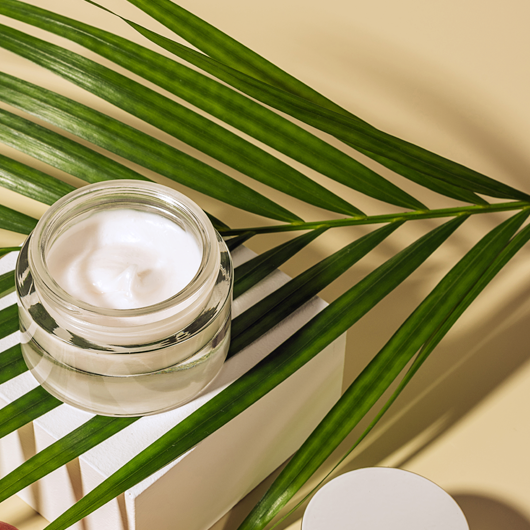Goji Berry
Goji Berry in Skin Care

Scientific Name: {Lycium barbarum}
Common Name: {Wolfberry, Goji, Goji Berry, Boxthorn, Matrimony Vine, Desert Thorn, Himalayan Goji Berry, Ningxia Berries, Red Diamond}
Varieties: Dry, powder, or fresh berries.
Goji berry is a superfruit that contains an especially abundant amount of antioxidants. Moreover, Tibetan monks have long known the power of goji berries. However, they are only now coming into vogue in the rest of the world, being added to smoothies and health supplements for their anti-inflammatory properties.
Inside the body, they work to make the kidneys and liver healthy, as well as fight depression, alleviate allergies, and even help insomniacs find relief.
The Ultimate Superfood
They have long been lauded as both prolonging life and rapidly increasing physical and emotional health.
Goji berries are chalked full of essential nutrients, making them ideal for cosmetic and internal applications.
- zinc
- calcium
- beta-carotene
- selenium
- potassium
- magnesium
- iron
- vitamins b1, b2, b6 and e
- polysaccharides
- 18 amino acids
18 Amino Acids in Goji Berries
Amino acids both help protect and reconstruct the look of healthy skin. Further, they penetrate the underlying layers of tissue to provide the nutrients the skin needs to accelerate the regeneration process. Goji berries contain 18 amino acids that keep your skin looking young. Forthwith are the eight essential amino acids:
- Histidine
- Isoleucine
- Leucine
- Lysine
- Methionine
- Phenylalanine
- Threonine
- Tryptophan
- Valine
Here are the ten additional amino acids
- Alanine
- Arginine
- Aspartic acid
- Cystine
- Glutamic acid
- Glycine
- Phenylalanine
- Proline
- Serine
- Tyrosine
Antioxidant-Rich Berry
Goji berries, known by various names, are celebrated for their rich nutritional profile and health benefits. Here are some common names for goji berries and what they are best known for:
-
Lycium Barbarum: This is the scientific name for goji berries. They are best known for their potent antioxidant properties, which help combat oxidative stress and may contribute to improved overall health and skin vitality.
-
Wolfberry: Another name for goji berries, often used in the context of traditional Chinese medicine. Wolfberries are renowned for their potential to boost immunity, improve eyesight, and promote longevity due to their rich vitamin and mineral content.
-
Red Diamond: Sometimes referred to as this, goji berries are celebrated for their high nutrient density. They are considered a 'superfood' due to their extensive antioxidants, vitamins (notably vitamin C), minerals, and amino acids.
-
Ningxia Berries: Named after the Ningxia region of China, where they are widely cultivated. These berries are known for their role in traditional Chinese medicine, particularly for liver and kidney health and overall vitality.
-
Himalayan Goji Berry: This name highlights their cultivation in the Himalayan Mountain region. They are known for their adaptogenic properties, helping the body to resist stressors, and are believed to support healthy aging.
In the context of skincare, goji berries are celebrated for their hydrating, anti-aging, and skin-soothing properties, making them a valuable ingredient in serums and moisturizers.
5 Benefits of Using Goji Berries in Skincare Serums and Moisturizers
- Antioxidant Powerhouse: Goji berries are rich in antioxidants, which help protect the skin from environmental stressors like pollution and UV exposure, thus preventing premature aging.
- Promotes Skin Hydration: Naturally occurring polysaccharides in goji berries enhance the skin's ability to retain hydration, leading to a more supple and moisturized complexion.
- Boosts Collagen Production: High in vitamin C, goji berries stimulate collagen production, essential for maintaining skin elasticity and reducing the appearance of fine lines and wrinkles.
- Improves Skin Tone: Regular use can help improve skin tone and reduce hyperpigmentation, thanks to their natural vitamins and minerals.
- Soothing Effects: Goji berries have anti-inflammatory properties, making them beneficial for calming irritated skin and reducing redness.

Goji promotes a healthy and robust complexion. For instance, looking younger is more beneficial and more resilient to premature aging from the environmental pollutants we encounter daily.
Additionally, along with antioxidants—one of the most concentrated sources of this essential photoaging fighting component—a goji product can protect skin from free radicals and toxins.
With plenty of B Vitamins and vitamins E and C, the antioxidant effect intensifies as all work together to scavenge for free radicals and neutralize them.
In addition, when eaten, Beta-sitosterol, another nutrient in goji, can reduce inflammation in the digestive system.
The Ultimate Superfood
Goji berry is one of the most nutrient-rich foods on the planet. Moreover, it contains 21 trace minerals, including zinc, iron, copper, calcium, germanium, selenium, and phosphorus.
In addition, polysaccharides support our immune systems. So, the short and long-chain sugars are:
- D-arabinose
- D-fucose
- D-glucose
- D-galactose
- D-rhamnose
- D-xylose
It reduces redness and even the look of dark spots like freckles and softens scars on the skin. Hence, it can combat puffiness and other stress indicators when used under the eyes.
Whether applied topically or taken orally, goji is believed to prolong the life of the cells it comes into contact with. When taken internally, it helps prevent the development of age-related chronic diseases.
When taken topically, it helps keep cells full and fresh. Unfortunately, as your complexion ages, cell renewal lessens, which causes wrinkles and lackluster skin.
Finally, by extending the life of healthy cells, goji mitigates the slowing cell regeneration process. In addition, this allows cells to live long enough to replace new, healthy, young-looking cells. Therefore, the result is a fresher, brighter appearance.
Sources:
https://www.ncbi.nlm.nih.gov/pmc/articles/PMC6343173/
https://www.medicalnewstoday.com/articles/322693.php
https://www.clinicaladvisor.com/home/alternative-medicine-update/wolfberries/
About the Author
Kari Thomas wrote this article.


 Buy with Prime
Buy with Prime




